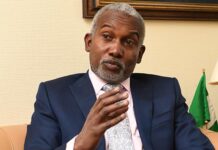Just like P&G, GSK, PZ Cussons plans to leave Nigeria
There are indications that PZ Cussons Plc may leave Africa after sales plunged in its Nigeria operation.
PZ Cussons has put its Africa business under review, potentially pivoting away from the region in which it was founded to invest in its remaining business and pay down debt, Bloomberg reports.
According to the media platform, the British soap maker was set up in Sierra Leone 140 years ago and now gets almost 30 per cent of its sales from Africa, even after a 48 per cent decline over the past year.
With annual sales of around £500 million ($622 million), it is spread across many geographies and product lines. It also operates in Europe, America and the Asia-Pacific region.
Chief executive officer, Jonathan Myers, said, “We have to have an eye on the future as well as a respect for the past. There could be many permutations of the outcome, which could include a change in ownership. We are going to be objective and not emotional in how we make this decision.”
The company’s shares rose five per cent on April 24, 2024, but down 50 per cent over the past 12 months.
PZ Cussons also plans to sell fake tan brand, St. Tropez. It said the label has grown significantly since the company bought it in 2010, adding that significant long-term growth potential remains in the US and new markets.
“It could be worth £100 million, Investec analyst Matthew Webb said in a note.
Myers said that the company will focus on branded items for babies, as well as beauty and hygiene products, citing recent acquisition, Childs Farm, which makes toiletries for babies with sensitive skin as an example.
UK, Australia, New Zealand and Indonesia are Myers’ priority markets.
Following a strategic review, the board has decided that on top of the difficulties in Nigeria, the company is too complicated for its size. In a financial update, it cited “financial and human resources spread too thinly to generate consistent returns.”
In Nigeria, the company sells a range of products including Morning Fresh dishwashing liquid, refrigerators and cooking oil.
The devaluation of the naira means sales fell sharply in pound terms. It also stoked inflation which has hit consumers’ purchasing power.
In March, regulators rejected PZ Cussons’s application to buy out the 27 per cent of its Nigerian arm that it does not own, in order to delist it. The regulator said the offer price of N23 per share was unfair.
The PZ Cussons Nigeria in a release by the company secretary, Olubukola Olonade-Agaga, said: “It notifies the Nigerian Exchange Limited and the investing public that the Securities and Exchange Commission (SEC) has declined the Company’s request for its No Objection to PZ Cussons (Holdings) Limited’s (the majority shareholder) intention to acquire the shares held by all the other shareholders of PZCN at an offer price of N23 per share.
”Meanwhile, challenges faced by local and multinational manufacturers in Nigeria have been power crisis, constant devaluation of naira, forex availability and stringent government policies.
Recall that not long ago in July 2023, Unilever announced the exit of its home care and skin cleansing from Nigeria.
Similarly, Nigeria’s second-biggest drug producer and British pharmaceutical giant, GlaxoSmithKline Consumer Nigeria Plc, announced an end to manufacturing operations in Nigeria.
Also, French pharmaceutical multinational, Sanofi, announced its decision to quit operating in Nigeria.
Later on in November, Equinor Nigeria Energy Company (ENEC), a Norwegian energy corporation which holds a 53.85 percent ownership in oil mining lease (OML) 128, including a 20.21 percent stake in the Agbami field, operated by Chevron, announced the sale of its Nigerian operations.
Another manufacturing giant, Procter & Gamble (P&G) announced its decision to shut operations in Nigeria.
The president of the Manufacturers Association of Nigeria (MAN), Francis Meshioye, recently said that some international manufacturing firms had already exited Nigeria as a result of the power crisis, coupled with the unpredictability of the country’s foreign exchange rate before it was recently unified.
He added that the N144 billion spent on alternative energy sources by manufacturers in 2022 impacted adversely on the operations of the group’s members.
Follow the Neptune Prime channel on WhatsApp:
Do you have breaking news, interview request, opinion, suggestion, or want your event covered? Email us at neptuneprime2233@gmail.com




